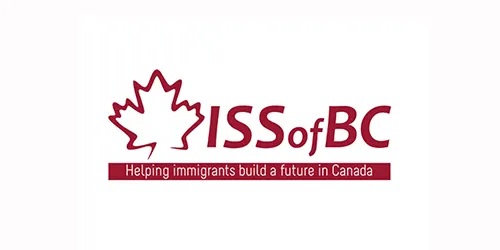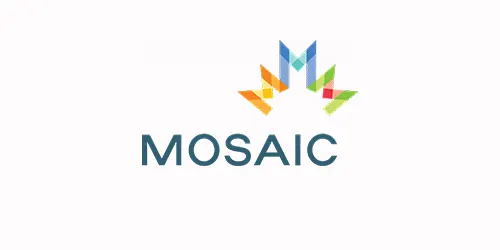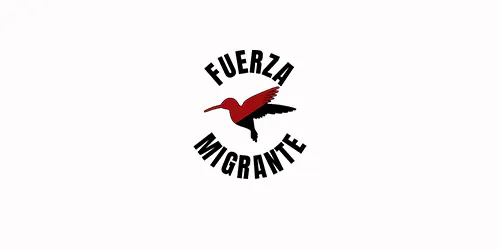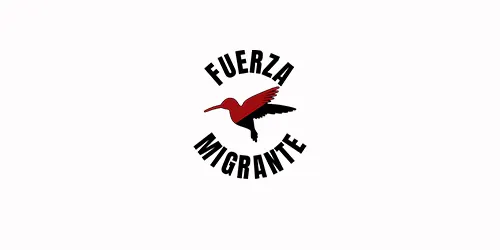
You need a job offer from a local employer before applying for a work permit in BC.
Each year, BC employers hire workers from around the world, often to meet short-term needs. Learn more about coming to work in BC temporarily, and your rights once you arrive.
What you should know
"I came to BC for the summer to work on a blueberry farm. After a few weeks, I realized I wasn’t getting paid what was promised. I worried that if I complained I would get sent home. Luckily I went to a workshop that explained my rights. That helped me decide to talk with my employer about it. They started paying me the full amount I was supposed to get.”
– Mario, Honduras

Migrant workers are covered by the main employment legislation in BC. This is the same law that applies to all employees in the province. It sets minimum standards that employers must meet, including for:
overtime pay
statutory holidays and holiday pay
annual vacations
minimum wage
Note that some of these standards don’t apply to farm workers, who are covered by a different set of rules. See our in-depth guidance on farm worker rights.
See our guidance on work-related topics for more information on your rights under BC employment laws.
You can file a complaint against your employer
If your employer isn’t respecting your rights, you can file a complaint with the provincial government. The BC Employment Standards Branch handles complaints against employers. It’s illegal for your employer to fire you or discriminate against you for filling a complaint. We offer guidance on the steps to take to file a complaint. Consider reaching out to a support organization for help in bringing your complaint (see the who can help section, below.)
Under BC law, no one can charge you a fee to help you find a job. This includes employment agencies and immigration consultants.
Nor can anyone charge you for providing information about employers looking for workers.
Even if your employer paid a third party to help recruit you, they can’t ask you to reimburse them for that expense.
It’s illegal for your employer to ask you to post a bond, or pay a deposit, when you start your job. Nor can they make you pay a penalty if you end your job early.
Some employers use tactics to get around this rule
Beware of schemes that employers use to get around this rule. For example, say your employer charges you for “processing your paperwork.” This could be an attempt to recover the cost of using an employment agency. If you suspect your employer is involved in such a scheme, contact one of the organizations listed below under who can help.
Most migrant workers wishing to come to BC for temporary work need a work permit. Whether or not you need one depends on the type of work you want to do. See step one of the apply for a work permit section, below.
There are two types of work permits:
open work permits
employer-specific work permits
We explain each type below.
You may need a visitor's visa
In addition to a work permit, you may need to a visitor’s visa to enter Canada. The federal government’s website has a questionnaire to find out if you need a visa.
“I live in India, and I found my job in BC through an employment agency in Vancouver. They charged me a big fee, and I didn’t learn until afterward they weren’t allowed to do that. I discussed it with my employer, and they agreed to reimburse me.”
– Manjula, India

Most workers coming from other countries to work in BC get an employer-specific work permit. These permits are issued under the Temporary Foreign Worker Program. They define conditions such as:
the name of the employer you can work for
how long you can work
where you can work
the work you are allowed to perform
To get this type of work permit, you need to have a job offer from an employer. Generally, before hiring a migrant worker, the employer will need to get a Labour Market Impact Assessment, or LMIA. This is a document showing that there aren’t any Canadian workers available to fill the job. You’ll need to include a copy of the LMIA with your work permit application.
See below, under apply for a work permit, to determine what kind of work permit you need and if you’re eligible for an employer-specific work permit.
The LMIA is your employer's responsibility
Getting a Labour Market Impact Assessment can be time-consuming and expensive for an employer. As a result, some may try to shift the burden onto the worker. Be careful if your employer asks you to pay for the LMIA, or do all the work to apply for it. It’s your employer’s responsibility, and you aren’t required to deal with it yourself.
In some situations, you can get a work permit even if you don’t have a job offer. This is called an open work permit. It’s issued under the International Mobility Program.
An open work permit allows you to work for any employer in Canada, except one who:
is listed as ineligible, or
regularly offers striptease, erotic dance, escort services or erotic massages.
An unrestricted open work permit allows a migrant worker to be employed in any occupation or location in Canada. A restricted open work permit allows only certain types of work, in certain locations.
You may be eligible for an open work permit if you fall into one of these categories:
International student. You’re an international student who graduated from a designated learning institution and are eligible for a post-graduation work permit. Or you’re a student who can no longer afford the cost of your studies.
Eligible family member. You’re a dependent of someone who applied for permanent residence. Or you’re the spouse or common-law partner of a skilled worker or international student.
Temporary resident. You’re a temporary resident permit holder. Or you’ve applied for permanent residence in Canada.
Youth worker. You’re a young worker participating in special programs.
Other. You’re a refugee claimant, protected person or their family member. Or you’re under an enforceable removal order.
See below, under apply for a work permit, to determine what kind of work permit you need, and what kind you’re eligible for.
If you come to BC for temporary work, your spouse or common-law partner and your dependents can apply to come with you. They can also apply for a study or work permit.
Generally, your family members also need work permits to work in Canada. See the steps in the apply for a work permit section below.
In some cases, they may be eligible to apply for an open work permit. This would allow them to accept a job with any employer. And they wouldn’t need a job offer before applying. See above, under what you should know.
Your family member may need to get a visitor visa
If family members want to join you in BC but don’t want to work or study, they may need to get visitor visas. Visit the federal government’s website to find out if a family member needs a visitor visa.
If you quit or are fired before your job contract is up, or before your work permit expires, your employer can’t force you to leave Canada. This applies to employment agencies as well. Only the federal government has the legal authority to ask you to return to your home country.
Organizations that can help
If you are facing threats from your employer for filing a complaint against them, there are people who can help. See the who can help section below for a list of support organizations.
Apply for a work permit
You usually need a work permit to be legally employed in Canada. But not always. Check the federal government’s website to find out if you need a work permit.
In Canada, there are two types of work permits:
employer-specific work permits
open work permits
Both types are explained in the sections above.
The type of permit you need to work temporarily in BC depends on what kind of work you want to do. Visit the federal government’s website to determine what kind of permit you need.
You may be able to have the application process sped up
You may be eligible to have your work permit application sped up under the Global Skills Strategy. Whether you qualify will depend on the type of work permit you’re applying for. Your family members may also be eligible. If you qualify, your work permit will be processed in two weeks.
Your eligibility for a work permit depends on a few things, such as where you’re applying from. However, there are some general requirements. To be eligible for a work permit, you must:
prove that you plan to leave the country when your work permit expires
show you have enough money to take care of yourself and your family during your stay in Canada, and can afford the trip home
obey the law and have no record of criminal activity (you may need a police clearance certificate)
not be a danger to Canada’s security
be in good health and have a medical exam (if needed)
not plan to work for an ineligible employer
not plan to work for an employer who, on a regular basis, offers striptease, erotic dance, escort services or erotic massages
provide additional documentary proof that you can legally enter the country, if an officer asks you to do so.
Depending on your situation, you may also need to meet additional requirements.
If you want to apply for a work permit when you enter Canada:
you must be from a visa-exempt country, and
you must already hold a valid medical certificate if you need it for your job, or are from a designated country.
Your employer must have completed all of the steps required for the type of permit you’re applying for (unless you’re applying for an open work permit).
Most temporary migrant workers need to give biometric samples, such as fingerprints and photos, before they get to Canada. You can deliver your biometrics to a visa application centre (it doesn't have to be in your country of residence) or an application support centre in the US.
You can search on the federal government’s website for the location nearest you.
If you’re eligible to apply for a work permit when you enter Canada, you can show your biometrics when you arrive. But if you started your application outside of Canada, you must provide your biometrics before you arrive.
The documents you need for your application are different depending on how you’re applying and where you’re applying from. Go to the federal government’s website to generate your application package.
If you apply from outside of Canada
If you apply for a work permit from outside of Canada, you need to provide the following documents with your application form:
Proof of identity. This includes a valid passport or travel document, and two photos of yourself and any family members joining you.
Proof of employment in Canada. If you’re exempt from the LMIA requirement, include your offer of employment number (your employer should give this to you). If you need an LMIA, include a copy of it (your employer should give this to you too), together with a copy of your employment contract. You’ll also need to provide proof that you’re eligible for the job.
Proof of relationship. You may need to provide a marriage certificate and birth certificates for your family members. If you’re in a common-law relationship and your partner is coming with you, you must fill out a statutory declaration of common law union.
Other documents. If you aren’t a citizen of the country you’re applying from, you must include proof of your immigration status. If the government that issued your passport or travel document requires one, you’ll need to have a re-entry permit before applying. A migration officer may ask you for more supporting documents.
If any of your documents are in a language other than English or French, you need to have them translated. You must provide:
the English or French translation of the document,
an affidavit from the person who did the translation, and
a certified copy of the original document.
If you apply when you enter Canada
If you’re eligible to apply for a work permit when you arrive in Canada, you may need to bring:
your job offer and a Labour Market Impact Assessment number, or
the offer of employment number, if applicable to your type of job.
In addition, you may need to provide:
proof that you meet the qualifications and experience for the job you will do in Canada
proof that you don’t need an LMIA for your job (if applicable)
a valid medical certificate if you need it for your job or if you’re from a designated country
a valid passport or other travel document.
If you’re applying for an open work permit, you don’t need to provide any documents from an employer.
Your application package is specific to your situation
The documents you need to include with your application may be different from those listed above, depending on your grounds of application. Visit the federal government’s website to generate your application package.
In addition to gathering the required documents, you need to prepare the required forms. All of the forms should be listed in your application package.
The following documents are required if you apply for a work permit from outside of Canada:
A document checklist (each country has its own requirements).
Your family information.
A statutory declaration of common-law union, if you’re in a common-law relationship and your partner is coming with you.
Use of a representative if you’re appointing a representative or are cancelling a representative’s appointment. A representative is someone you appoint to communicate with the federal government on your behalf (for example, a consultant or lawyer).
An authority to release personal information to a designated individual, if you want to authorize the government to release information on your file to someone else.
Fill out each section of the forms you’re required to submit. If a section doesn’t apply to you, write “not applicable” or “NA.” Sign and date your application. If you need more space for any section, print another copy of the same page and submit it with your application.
Make sure your application is complete before you submit it. An incomplete application could delay processing. See this guidance from the federal government on how to fill out your application.
If you're having trouble with your application
If you’re having trouble completing your application, here are the answers to some common questions. As well, here are tips if you can’t open the PDF forms.
There are three separate fees you may need to pay:
an application processing fee
an open work permit holder fee
a biometric fee
If you’re applying for an open work permit, you’ll need to pay the open work permit holder fee on top of the application processing fee. If your application is refused, you get a refund of the open work permit holder fee.
The basic application processing fees (in Canadian dollars) are:
$155 per person
$465 for a group of three or more performing artists
$100 open work permit holder fee
Giving biometrics isn’t always mandatory. To find out if you need to give biometrics, visit the federal government’s website. If you or your family members need to give biometrics, pay the fee in the same way and at the same time as the processing fee. The fees for biometrics are:
$85 per person
$170 for a family of two or more
$255 for a group of three or more performing artists
Once you’ve paid your fees, make sure to include the payment receipt with your application. Processing fees and biometric fees are non-refundable, even if your application is denied.
How to pay your fees
To pay your fees, you need:
a valid email address,
access to a printer (to print the receipt), and
a credit card or Canadian debit card.
For online payment, visit the federal government’s website and follow the instructions. At the end, print off two copies of your receipt and attach one to your application. Keep the second copy for your records. Make sure you don’t exit without printing your receipt!
If you can’t pay online, Canadian migration offices accept other methods of payment.
Your application will be processed once you've paid
Your application will be processed once you’ve submitted the correct payment. If you pay too little, the government will return your application and remind you what you owe. If you overpay, they’ll begin processing your application and issue you a refund for the overpayment.
You have two options for submitting your application:
Send your application to a visa application centre in your area
Apply online
To apply online, you’ll need a scanner or camera to create electronic copies of your documents. You’ll also need a valid credit or debit card.
There are advantages to applying online
Applying online has some advantages over a paper application. You avoid processing delays because you’re notified immediately if your package is incomplete. You can quickly submit additional documents if they’re required. And you can get updates on the status of your application by checking your online account.
An officer will review your application and assess all the information and documents you’ve submitted. The officer may request that you attend an interview. If so, you’ll get a letter specifying the date, time and place.
If your application is refused, you’ll get a letter explaining why. If your application is accepted, you’ll get a letter of introduction confirming the approval. Any original documents you submitted (for example, your passport) will be returned.
See the federal government’s website to check the processing times.
When you arrive in Canada, an officer at the port of entry will determine if you’re still eligible to enter the country. If there’s been a change in your circumstances since you applied, you might be refused entry. Otherwise, you’ll receive your work permit at this time.
If you gave biometric information with your application, the officer:
will check your travel documents and compare your photo to the one taken when you applied, and
may ask to compare your fingerprints to the fingerprints taken when you applied.
Make note of when your work permit expires
The officer will set a date by which you must leave the country or apply for an extension of your work permit. Make a note of it. As well, see our guidance on applying to extend your work permit.
Common questions
If you feel unsafe or at risk of abuse at work, you can report the issue to the appropriate agency (for example, WorkSafe BC or the Employment Standards Branch). It’s illegal for your employer to fire you or discriminate against you for bringing a complaint against them.
See our guidance on how to file a complaint with the Employment Standards Branch. Also, see our guidance on making a claim for workers' compensation.
If you need help with translation
Currently, the documents for filing a complaint with the Employment Standards Branch are only available in English. If you need help with translation, try reaching out to a support organization (see the who can help section, below.)
It depends on why you want to stay. As a temporary foreign worker, you may want to stay in BC for any of the following reasons:
Your employer wants to rehire you.
You’re offered a job with a different employer.
You want to live and work in BC permanently.
See our guidance on extending your work permit.
If you suffer an injury at work you must tell your employer or supervisor right away. You have the right to get medical care if you need it. If your injury is serious you should see a doctor right away. If it’s a minor injury — like a cut or scrape — see the first-aid attendant at your work site.
No matter how serious your injury, you must file a report with WorkSafeBC describing what happened. If your claim is accepted, WorkSafeBC will pay for your medical care. You may also be eligible for other benefits (for example, wage loss benefits). See our guidance on the steps to make a claim.
Who can help

Immigrant Services Society of BC
Provides settlement and employment services to new immigrants.

MOSAIC
A non-profit providing free settlement services to new immigrants.

S.U.C.C.E.S.S.
An organization that delivers settlement services to immigrants in BC, including integration and mentoring programs, legal clinics, pre-departure workshops and more.

Fuerza Migrante
A non-profit organization of migrant workers and volunteers that promotes migrant workers’ rights in Canada and abroad.

Migrant Worker's Centre
A non-profit organization that provides legal information, advice and full representation to migrant workers in BC.

Access Pro Bono's Free Legal Advice
Volunteer lawyers provide 30 minutes of free legal advice to people with low or modest income.

Access Pro Bono’s Everyone Legal Clinic
Clinicians provide affordable fixed-fee services on a range of everyday legal problems.

Lawyer Referral Service
Helps you connect with a lawyer for a complimentary 15-minute consult to see if you want to hire them.

BC Legal Directory
Search for a lawyer by community or legal issue. From the Canadian Bar Association, BC Branch.



